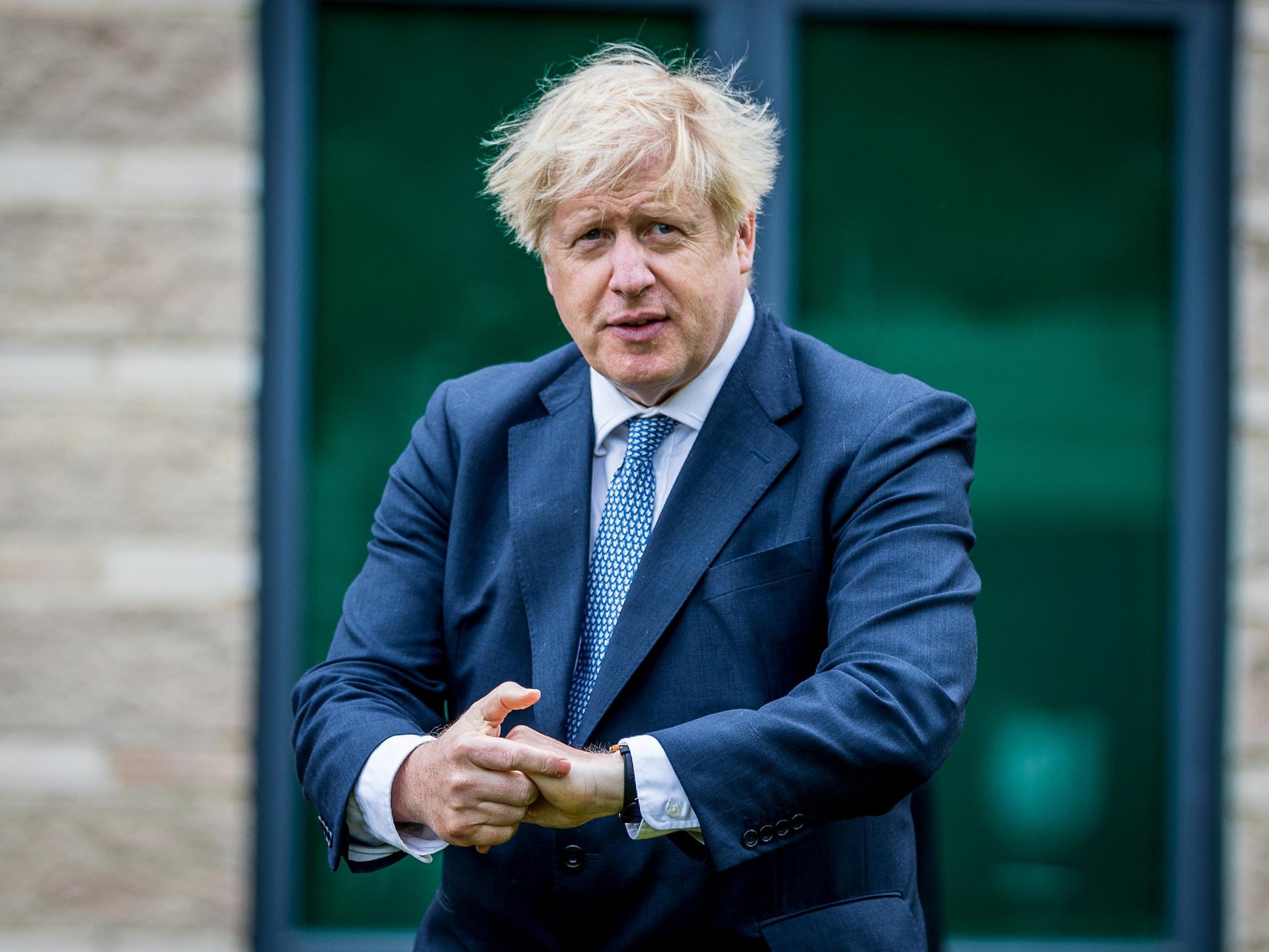
The former government adviser whose modelling is credited with finally convincing Downing Street to impose a coronavirus lockdown has revealed he has never met Boris Johnson.
Imperial College London epidemiologist and former Sage adviser Neil Ferguson became nicknamed “Professor Lockdown” after his team’s report in mid-March suggested 510,000 people could die from Covid-19 in the UK without any government intervention, and that the NHS would be overwhelmed regardless.
The dramatic modelling is widely reported to have been the catalyst for the UK’s lockdown, after crucial weeks of governmental indecision over a herd immunity strategy versus the lockdown restrictions springing up across Europe.
But despite his significant role in shaping the momentous decision, Prof Ferguson told The New Statesman: “I never met Johnson, I never had one-on-ones, it’s not the way science advice works in the UK.
“It all goes through Sage and then the scientific consensus is communicated to Johnson by Chris Whitty and Patrick Vallance.”
The former government adviser added: “We did have some conversations on the margins of Sage meetings with No 10 special advisers, but that was the closest I got to any politician.”
Serious questions were raised in April after it emerged that Mr Johnson’s chief political aide, Dominic Cummings, had participated in crunch meetings of the government’s scientific advisory group, which are supposed to be politically impartial, including on 23 March – the eve of lockdown.
Meanwhile Mr Johnson attended his first Cobra meeting on coronavirus only once it had been identified in 40 UK patients, with Michael Gove admitting the prime minister missed five such meetings throughout January and February.
In May, he admitted he did not read scientific papers presented by Sage, merely a digest given to him by his advisers.
A week later, reports that Mr Johnson was to take “direct control” of the coronavirus response prompted Labour leader Keir Starmer to ask: “Who has been in direct control up until now?”
Having told MPs in June that the death toll would have been halved by entering lockdown one week earlier, given that “we knew the epidemic was doubling every three to four days before lockdown interventions were introduced”, Prof Ferguson again lamented that the UK was “too slow” to act.
“Paradoxically the government probably had a more nuanced and detailed understanding of what we knew and what we didn’t about the virus than any other government – I’ve dealt with a lot of governments in this crisis – and yet we were too slow, to be blunt,” he told the magazine.
Prof Ferguson added that his modelling results were “one of the three pieces of evidence that led Macron to locking down France, apparently”, having passed them to a colleague at the Institut Pasteur, Simon Cauchemez, who showed them directly to the French president.
“There’s some interesting reflection to be had on whether having a very nuanced, reflective, risk-adverse scientific advisory system going into policy gives you the most agile system,” he said.
“In other European countries, like France, a small group of scientists – experts on the disease – directly talked to the politicians. Here, we have this interface layer, which does stop charismatic individuals unduly influencing policy.”
Prof Ferguson, whose modelling and increasingly vocal warnings of the dangers posed by the virus thrust him into the spotlight - and infamy on the libertarian right – long before his admitted lockdown breach and resignation saw him splashed on Britain’s front pages, conceded that “there are plenty of people in the country who would say that I’ve already influenced policy unduly”.
However, he said he “hated” the nickname of Professor Lockdown, and lamented being “bizarrely categorised as ... almost a semi-official government spokesman”, adding: “I suppose I felt a need to explain it to people, communicate why it was necessary.”
He added: “If you go back to the Sage meetings, I was never sceptical about lockdown, but I was always very, very conscious of the economic and social impact it would have, and the fact that it wasn’t a long-term solution: basically, if we adopted it, we would be in this position forever.
“I concluded reluctantly it was what we had to do, but it isn’t a perfect solution by any means.”
tinyurlis.gdu.nuclck.ruulvis.netshrtco.de
مقالات مشابه
- بوریس جانسون اخبار – زنده: ساعت تنظیم برای بازگشایی سینما و موزه ها به عنوان ژاپن به انگلستان شش هفته به اعتصاب پست-Brexit معامله تجارت
- شرکت صادرات و واردات کالاهای مختلف از جمله کاشی و سرامیک و ارائه دهنده خدمات ترانزیت و بارگیری دریایی و ریلی و ترخیص کالا برای کشورهای مختلف از جمله روسیه و کشورهای حوزه cis و سایر نقاط جهان - بازرگانی علی قانعی
- Coronavirus قوانین هنوز آن را غیر قانونی برای جمع آوری در گروه های بیش از دو پلیس هشدار جلوتر از داغ آخر هفته
- شرکت صادرات و واردات کالاهای مختلف از جمله کاشی و سرامیک و ارائه دهنده خدمات ترانزیت و بارگیری دریایی و ریلی و ترخیص کالا برای کشورهای مختلف از جمله روسیه و کشورهای حوزه cis و سایر نقاط جهان - بازرگانی علی قانعی
- کلید چادر مسافرتی موفق
- شرکت صادرات و واردات کالاهای مختلف از جمله کاشی و سرامیک و ارائه دهنده خدمات ترانزیت و بارگیری دریایی و ریلی و ترخیص کالا برای کشورهای مختلف از جمله روسیه و کشورهای حوزه cis و سایر نقاط جهان - بازرگانی علی قانعی
- بهترین جارو شارژی برای سال 2020 - CNET
- 'محزون می خوانی ناکافی': گسترش اجاره اخراج ban و به مستاجران حداقل دو سال به پرداخت معوقه مطالبات کارگری
- شرکت صادرات و واردات کالاهای مختلف از جمله کاشی و سرامیک و ارائه دهنده خدمات ترانزیت و بارگیری دریایی و ریلی و ترخیص کالا برای کشورهای مختلف از جمله روسیه و کشورهای حوزه cis و سایر نقاط جهان - بازرگانی علی قانعی
- تحصیل داروسازی در کشور های اروپا در سال 2023رویزا